A crowdfunded initiative ensured that Bookaroo, India’s biggest children’s literature festival, could survive another edition. Led by the lack of sponsors, many daunting challenges face organisers in this fertile space
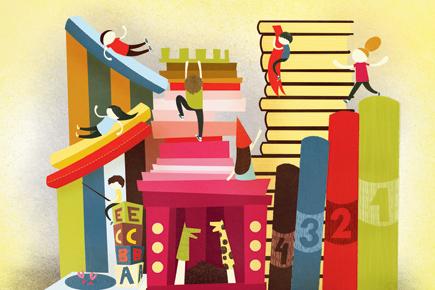
Children at a book stall at the World Book Fair in New Delhi, 2008. The nine-day annual book fair witnesses lakhs of visitors from India and overseas.
![]() India hosts up to 60 odd literature festivals every year, yet children-focussed festivals do not make up even 10% of those. The biggest of these, Bookaroo is organised by Venkatesh M and Swati Roy, (co-owners of a children’s book store), and Jo Williams, a former organiser of the Red House Children’s Book Award in UK.
India hosts up to 60 odd literature festivals every year, yet children-focussed festivals do not make up even 10% of those. The biggest of these, Bookaroo is organised by Venkatesh M and Swati Roy, (co-owners of a children’s book store), and Jo Williams, a former organiser of the Red House Children’s Book Award in UK.
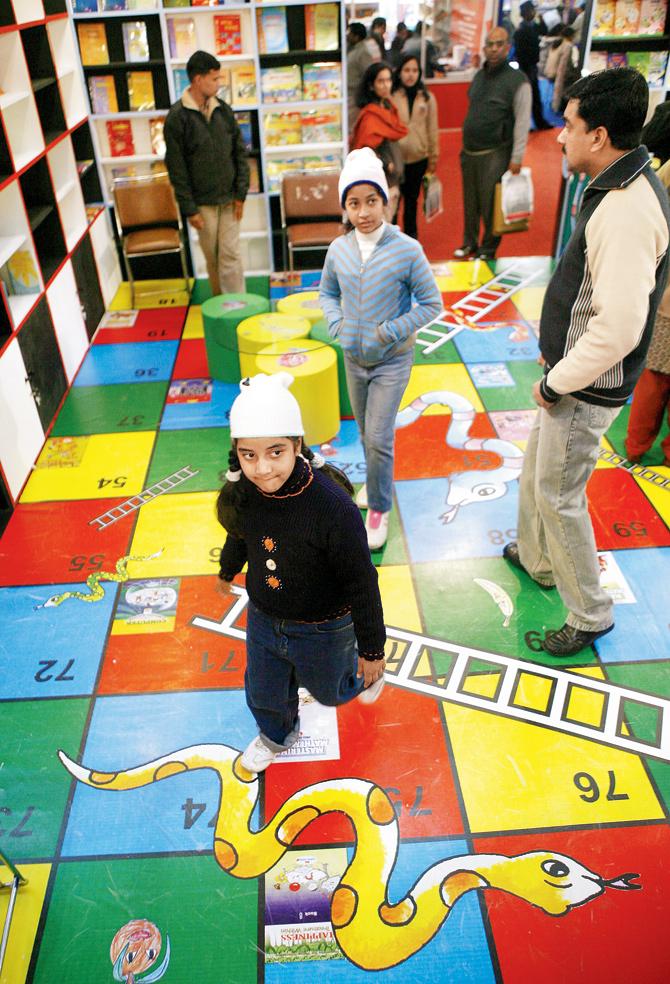
Children at a book stall at the World Book Fair in New Delhi, 2008. The nine-day annual book fair witnesses lakhs of visitors from India and overseas. Pic/AFP
ADVERTISEMENT
Lubaina Tyebji Bandukwala, an editor and children’s book specialist has been instrumental in setting up the Peek A Book Festival in Hyderabad this year. Kahani Karnival Trust in Mumbai was set up as a venture to create rich experiences around storytelling and reading; the year-round festival brings together authors, dancers, puppeteers, musicians, artists, theatre people and anybody who could tell a story while the Chandigarh Children’s Book Festival held its first sessions in 2014, and was well received.

This year, lack of sponsorships compelled Bookaroo to initiate a crowdfunding exercise to meet the costs of the festival. Sayoni Basu, publisher of Duckbill Books applauds the effort, “I am heartened by the response as it seems Bookaroo would have reached its target in less than a week after the campaign started. But it is surprising that it required campaigning.”
Send in the crowds
It was surprising that Bookaroo —India’s most popular children’s literary festival — had to resort to crowdfunding. Theirs is a success story. In 2008, its first year, the festival had 3,000 visitors between the ages of four to 14, who flocked to hear 36 speakers conduct 44 sessions in Delhi. In 2014, they had 70 speakers, 99 sessions and 13,000 children in Delhi, and 8,000 in Pune attended the festival, which now also takes place at Srinagar, Goa and Kuching, Malaysia.
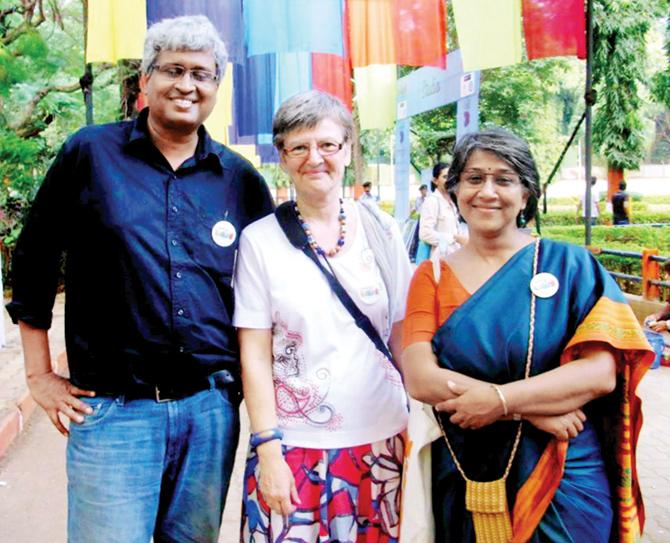
Bookaroo’s founders, (l-r) Venkatesh M, Jo Williams and Swati Roy
India has a rich tradition of storytelling but lacks an ecosystem that continuously drives reading, books and stories around kids. Museums, libraries and other spaces where our children can discover books and stories are woefully inadequate. Children’s literature festivals are the only ‘live’ platform that bring children, storytellers and stories together so they can imagine, understand, and become responsible, aware world citizens. Sadly, sponsorships are a huge challenge.
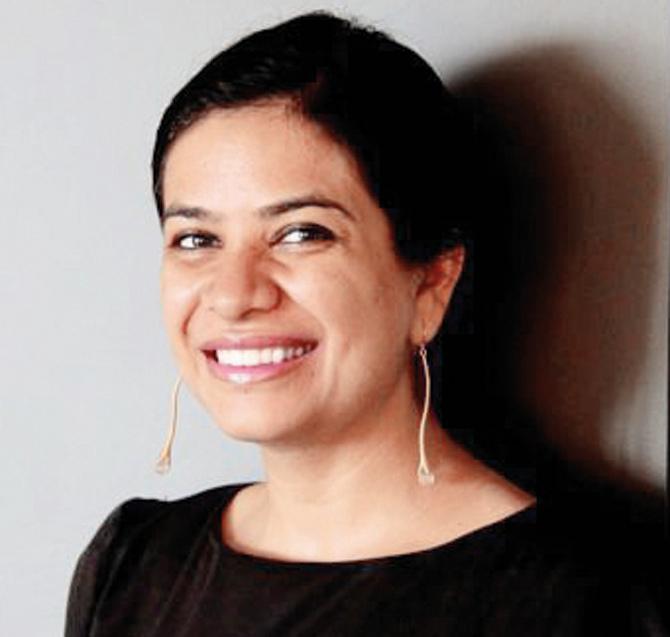
Natasha Sharma
From 2009 to 2011, insurance major Aviva was the main sponsor for Bookaroo, but they pulled out suddenly. Bookaroo isn’t the only casualty. Bandukwala explains the scenario, “Generally, sponsors are n’t interested in promoting literature. For them, festivals are a source of leads to be converted into sale. But people at such fests may not be interested in buying insurance or setting up a junior bank account. After a while, they do their math on Return On Investment (ROI) and discover other sources of leads. It is business on their side; the idealism is on ours.” Organisers don’t charge an entrance or participation fee at such festivals because they want to keep them focused. Venkatesh says, “A stall takes away the flavour. It’s why there are no exhibitors at Bookaroo. Publishers, arts councils and embassies support us.”
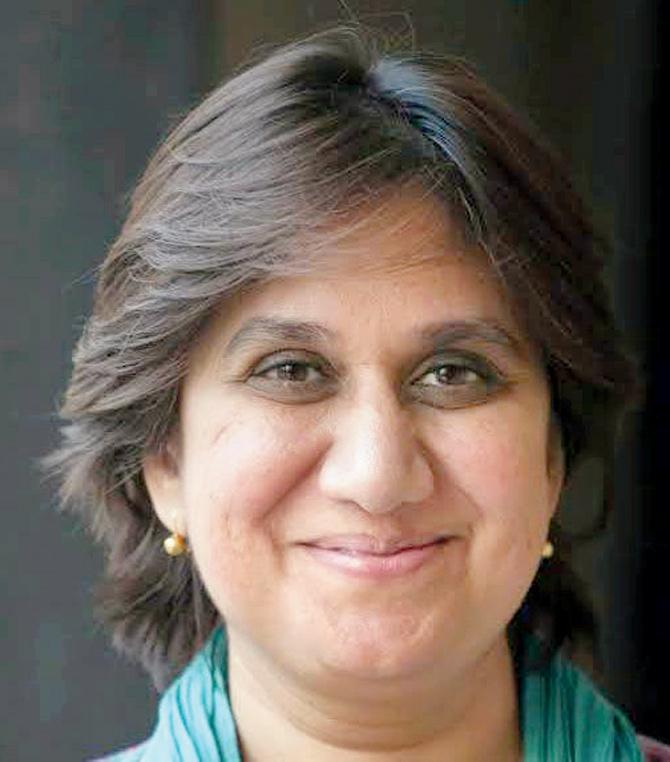
Lubaina Tyebji Bandukwala, founder, Peak A Book Festival
Bigger the better?
The biggest annual literary spectacle, The Jaipur Literature Festival (JLF) also struggles with sponsorships. Though literary festivals bolster local economies, they get no support from the state government — no designated spaces, no grants and no tax concessions. A sample survey conducted by Team Works indicated that the JLF bolsters the economy of Jaipur every year on account of hotel bookings, shopping and sightseeing. Bookaroo and other children’s festivals cannot boast of these spikes in the local economy, but the ROI for these need to be measured differently. Venkatesh asserts, “The value of reading for pleasure should not be underestimated; it has been proven that children who are read to from an early age achieve significantly higher results in school. It is a tough sell to impress upon potential sponsors and investors that the book continues to play an important role in children’s lives as a valid entertainment option.”
Sayoni Basu, Duckbill Books
If the medieval times saw royalty patronise the arts, today the government and its agencies are far from engaged. Richa Sethi and her team conducted the Junior Writer’s Bug festival for children for two years (2012 and 2013) but then, ‘took a break from the festival’ because children’s literature has to have a more long-term vision. Kahani Karnival will flag off another edition this weekend. They faced funding issues too; their co-founder Shinibali Mitra Saigal says, “We’ve been lucky that the Dr Bhau Daji Lad Mumbai City Museum not only came aboard as a partner but has been kind enough to fund our festivals too. This works for us because the museum is the best place to tell/ find and ferret stories.”
The corporate call
Corporate involvement in children’s literature must increase. Consumer goods companies that profit from marketing products to children — from noodles, chocolates, clothes and toys to movies, laptops and gaming must acquire cultural responsibility as well. Instead of supporting the arts as a Corporate Social Responsibility (CSR) initiative, it must be viewed as a Corporate Cultural Responsibility.
The Azim Premji Foundation organises Katha Vana, a book festival for Bangalore’s less privileged children. It brings books and stories to those who might have little or no access to them. But this is a rarity. Basu rues, “For corporates, who look for maximum ‘exposure’ when choosing how to use their money, reading is a frivolous cause for CSR initiatives, and not worthy of serious marketing money.”
In the Bookaroo crowdfunding effort, individuals have contributed from Rs 500 upwards, and their comments on the pages are telling. “Bookaroo brings a smile to a child’s face. It is an event that deserves to continue…” and “Because it’s Bookaroo, and must grow from strength to strength, making the world a better place.” We can’t wait for the page to turn to better times.
 Subscribe today by clicking the link and stay updated with the latest news!" Click here!
Subscribe today by clicking the link and stay updated with the latest news!" Click here!







